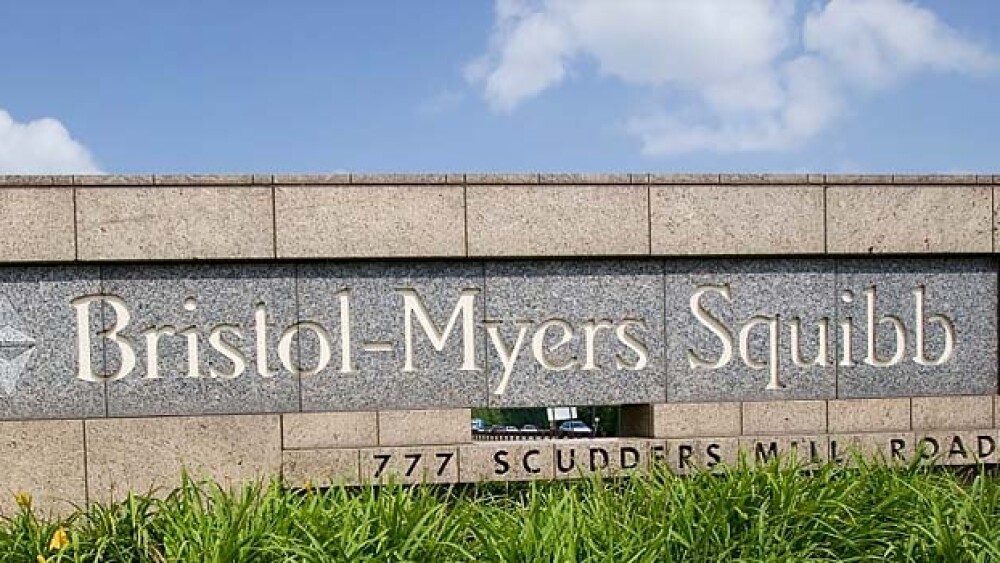Any 2018 BMS news is going to tend to get lost in the shadow of its $74 billion acquisition of Celgene. Still, it looked like a good year, with fourth-quarter revenue up 10% and full-year revenues up 9%.
Any news in Bristol-Myers Squibb’s 2018 full-year financial report is going to tend to get lost in the shadow of its $74 billion acquisition of Celgene. Still, it looked like a good year, with fourth-quarter revenue up 10 percent and full-year revenues up 9 percent.
“I am proud of our results in 2018, which were based on superior commercial performance for our prioritized brands and important scientific advances that continue to diversify our R&D pipeline,” stated Giovanni Caforio, BMS’s chairman and chief executive officer. “We are beginning 2019 with good momentum in our current business, with Opdivo and Eliquis continuing as strong and growing franchises. Our planned acquisition of Celgene will position us to create a leading biopharma company, with best-in-class franchises, significant near-term launch opportunities and a deep and broad pipeline, creating an even stronger foundation for long-term sustainable growth.”
In the fourth quarter, when adjusted for foreign exchange impact, revenues increased 12 percent. U.S. revenues increased for the quarter by 16 percent to $3.3 billion compared to the previous year, with international revenues increasing 3 percent.
BMS’s R&D expenses actually decreased in the fourth quarter by 29 percent to $1.4 billion, “primarily due to license and asset acquisition charges of $377 million.” The company’s effective tax rate for the quarter was 23.1 percent, compared to 433.7 percent in the fourth quarter of 2017. The company indicated that the 2017 fourth-quarter figure was impacted by a one-time $2.9 billion charge resulting from U.S. tax reform.
Profits for the fourth quarter were $1.2 billion or 73 cents per share. Analysts surveyed by FactSet had projected a profit of 82 cents per share on $6 billion in revenue.
BMS is noted for being ahead of the game in terms of immuno-oncology, but other companies, especially Merck & Co., have done a good job of catching up. For example, although BMS’s Opdivo failed to show effectiveness in newly diagnosed lung cancer patients, Merck’s Keytruda, also a checkpoint inhibitor, received approval in the U.S. for that patient group.
The Wall Street Journal notes, “Bristol focused on lung-cancer patients whose tumors have a high number of genetic mutations, known as tumor mutational burden, or TMB. Yet in October, the company said the FDA had moved back a deadline to rule on approving the combination in the high-TMB patients. On Thursday, the company said it was withdrawing the application altogether because more data are needed related to TMB and the overall survival of patients. The data won’t be available in time under the FDA’s timetable for deciding whether to approve the drug combination, the company said. The trial is still ongoing.”
That refers to the company’s supplemental Biologics License Application (sBLA) for the Opdivo and low-dose Yervoy combination to treat first-line advanced non-small cell lung cancer (NSCLC) in patients with tumor mutational burden (TMB) equal to or greater than 10 mutations per megabase (mut/Mb).
It’s not as if BMS’s drugs are failures, even with competition. Opdivo sales grew by $443 million, an increase of 33 percent in the fourth quarter; Eliquis grew 25 percent by $452 million; and Yervoy grew 43 percent by $115 million.
And this month, the European Commission (EC) approved the combination of Opdivo and Yervoy for the first-line treatment of patients with intermediate- and poor-risk advanced renal cell carcinoma.
And, of course, when the Celgene merger is completed, the combined company will have nine products with more than $1 billion in annual sales each, a deep oncology portfolio led by Opdivo, Revlimid, Pomylyst and Yervoy, and a cardiovascular portfolio led by Eliquis, and an immunology and inflammation franchise led by Orencia and Otezla.





